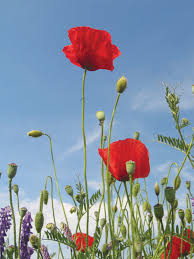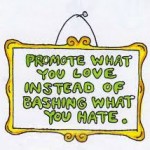Bernard-Henri Levy is celebrated, so I understand, in his native France as a “public intellectual”, as if this was a good thing. It seems their culture tends toward approval of such a beast, which is likely one of the reasons many Americans are suspicious or
dismissive of the French, even before they opposed G.W. Bush’s designs on Iraq. (Remember that? “Freedom fries” were being served at burger joints, because nothing French was palatable to a vociferous portion of American society.) Canadians are also leery of the so-called ivory tower; many think that intellectuals – “smarty pantses” – live nowhere else but white and high and mighty impractical.
Our John Ralston Saul is, therefore, a curious case. He’s not short of praise from various corners of the world: The Unconscious Civilization won Canada’s Governor General’s Award (prior, it must be noted, to his wife Adrienne Clarkson’s mandate), among many honours for his non-fiction and his novels; he’s been the President of International PEN (writers in global advocacy of reading, writing, and freedom of expression) since 2009; he’s a Chevalier of the French Academy of Arts and Letters and has received honorary doctorates around the world; he’s been acclaimed among the “visionaries” of the world by Utne Reader, and a “prophet” by Time magazine. Now, he’ll never make the cover of People, but he’s a Certifiably Celebrated Dude in some pretty lofty circles. But a Canadian? A public intellectual? Surely that sort of thing should be done only in private!
Unlike most Canadians, I not only know who he is but I’ve read him some, seen him speak in small groups and to large gatherings, even shared a meal or two with him and a few hundred others. I confess: I admire the guy.¹ At home, though, Saul is sometimes regarded, by those who are even aware of him, with suspicion, even outright antagonism, or just written off as an “elitist”, which may not be the kiss of death exactly, but in Canada it’s close. (Truth: he does like fine wine and haute cuisine and swimming in lakes. His many books do sell and people will pay to hear him speak, so he is no starving artist/intellectual. Yes, and one of his several homes is near downtown Toronto; Rob Ford
got elected Mayor, and could again, by stoking suburban distrust of the “tax-and-spend” “liberal elites” of the city. So: “man of the people”? Not many of them, no.)
Saul is, at times, the national poster-boy of our “tall poppy syndrome”, the seemingly reflexive Canadian compulsion to cut people “down to size” if they gain prominence.² Alice Munro, our gentle and humble Nobel Prize-winning author, captured this haughty envy in a story title, “Who Do You Think You Are?” We don’t want anyone to become too proud, and as a beginning that’s a fairly noble impulse, I suppose. The dark side is easy to find, though: too often, we just hate it when people do something we can’t — or just don’t — maybe because we’re too busy gossiping or tweeting or watching sit-coms or reading the sports section. Some call it the “politics of envy”, and surely we can do better than that.
¹ I even once played some hockey with the man. He could hardly skate, but had the guts and grins to totter about with young guys who could really play. (I was in between, age- and skill-wise.) His then-executive assistant, Marc Gobeil, and I taught him how to kick a football when he was slated for the ceremonial kick-off at a Grey Cup game. (As for your need-to-know, we decided that the old-fashioned straight-line approach to the pigskin would suit him better than soccer-style.)
¹Uh-oh, another sports-related aside: even our most brilliant hockey players, for goodness’ sake, suffer this. Wayne Gretzky is Saint Wayne now that his stupendous career is safely over, but there was always a significant group of resentful hockey-heads who mocked him because he didn’t brawl or muck about in the corners, preferring to rewrite the record books. Sidney Crosby is the world’s best player, has been for years, but only now, when he’s captained Canada to two Olympic gold medals, has the “Cindy Crosby” carping been muted. (I’ll concede that he did have to learn to shut his mouth, but so did you and I and lots of other 18-year-olds, though not in front of millions of safely opinionated people. If such complaints weren’t so blatantly wrong-headed from a hockey point of view, we might go farther and examine the implied misogynistic disgust behind calling a hockey star a girl. But not today.)
So, yes. And what’s it like to be a Tall Poppy? If somebody Canadian gets called a “prophet”, well then we mightn’t be surprised to find that “he hath not honour in his own land”. Who wants to think, Wow, that skinny dude with the big words and the yellow socks knows stuff I don’t! I better listen. Not many, I think. People such as Saul, such as Jane Jacobs (we miss her), or that increasingly cranky voice crying in the ecological wilderness, David Suzuki: all of them, extending all the historical way back to the pointed truth-telling of Jesus and the relentless observations of Socrates, Saul’s model, are social gadflies. What a thing to be! A non-metaphorical gadfly stings and bothers horses and wildlife and middle-aged guys trying to run in the northern Ontario woods. Societal critics bite, they buzz, they circle back to the same sensitive spots again and again, and our instinct is to shoo them away. (And it’s true, some of them just bite to exalt themselves, or to inflict pain. And yes, maybe we need a better word for those who sincerely try to point out our weaknesses, rather than naming them after insects that irritate and take our blood. Benevolent critics? Conscientious objectors? Witnesses for the commons? They don’t exactly roll off the tongue.) Or we keep the windows shut, buy bug zappers for our backyards and keep the air-con way up high.
Echoing Socrates, Saul says, towards the end of his 1995 book The Unconscious Civilization, that true individualism and real contributions to the general good require
the refusal to mind your own business. This is not a particularly pleasant or easy style of life. It is not profitable, efficient, competitive or rewarded. It often consists of being persistently annoying to others as well as being stubborn and repetitive….Friedrich Nicolai put it clearly: ‘Criticism is the only helpmate we have which, while disclosing our inadequacies, can at the same time awake us to the desire for greater improvement.’
But who wants to be criticized? We tend to think of it as mean-spirited slagging, not as good medicine. So, thin-skinned and endlessly sensitive moderns that we are, we protest all offences to our entitlement. We return to our stiff-necked Protestant past and shake disapproving fingers at those whose accomplishments make us uncomfortable with our own unrealized potential. We shoot messengers, or, more likely, pretend we can’t hear them. Unfailingly, it seems, we’re fatally slow to listen to the voices of those who try to tell us we’re driving the wrong way (it’s not just men that do this, but we’re really good at it). I’ve been writing about Saul and his thought for awhile, and this is the end of it, or nearly,
but I have to tell you: I like tall poppies, and I try to cut my resentment, not them. Tall poppies can see a little farther than we dandelions, and we ought to admire rather than scorn them.




Tall Poppies. Humility.
A difficult concept as an individual: what does it mean to be humble? As soon as I identify myself as humble, I am no longer. Humbleness can be observed in you, but not self-identified. At least, one’s self is not able to announce one’s self as humble.
I have been trying to understand humility, but a tall poppy? Many of the people named can be described as being humble, I guess, because they are not proclaiming their successes, nor ‘failures’. They just are. One named individual, however, proclaims his worth to society, and redirects focus to his political achievement and would not, in my estimation, be a tall poppy. Humility is lost on him.
Can we be tall poppies within our own sphere of existence? If the 7 billion-ish people were asked who I was, 6.99999999 billion would have no clue. A very small subset of Canadians might know who I am or what I have or have not accomplished, and many of them would remember the negatives about me, not my so-called accomplishments. Does that anonymity make me less of a tall poppy as compared to say a Saul or a Bush or a Suzuki? On the world scale, and on the North American scale, and on the country scale, and on the scientific world scale and on the — you get the idea — I am no tall poppy. I am not even a sprig of growth, but in my own little way, in my own little sphere of existence, I’d hope that at least someone, besides my mother or father, would grant me recognition for being at least more than a sprig.
Does world acclaim, or a large subset of societal acclaim, make you a tall poppy? Maybe so. But ask a tall poppy what is truly most important to them, world recognition or ‘my own sphere’ recognition, and I’d lay odds that the latter is of utmost importance and the former of little or no relevance to them at all.
“What others’ think of me is none of my business!”
That being said, and probably not agreed with, the matter of being a poppy at all, tall or otherwise, is real. I remember my grade 7 and 8 years in school. Any kind of poppy-ness was quickly quashed by students, and was not supported nor fostered by staff. Poppies were chopped off at the ground, not for display, but left to rot and wither away in the undergrowth. It seems that a red poppy in a sea of red poppies is what society strives for, at least when I was growing up. I had a teachers’ college friend who challenged my view of what a weed is. We were walking on the shores of the lake in North Bay in spring, and saw the garden of poppies planted there. They were all up in full bloom. A sea of red. She said, “Look at that weed.” For the life of me I could not see the weed. She pointed out one, lone yellow poppy. She asked, “Do you believe that the gardeners planned for that one yellow poppy to be in a sea of red?”
I have never tried to be a tall poppy, but I have always known that I was a yellow one, just as worthy of position and recognition. But I have also felt like the weed that needed to be plucked from the rest as not belonging.
Tall poppies and weeds must be strong. They must withstand so many pressures and rebukes of their existence, so many challenges to their thoughts and beliefs.
I not only hope to be recognized some day for being the yellow poppy, but maybe even a tall poppy in my sphere, but not for some grandiose thing I have done to say “look at me”, but for having lived a good life filled with some purpose.